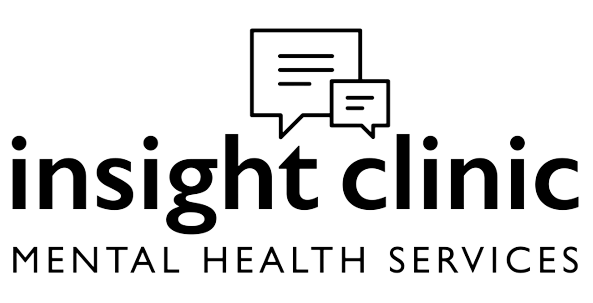Posted on July 29, 2023 by Insight Clinic
What is Post-Traumatic Stress Disorder?
Post-Traumatic Stress Disorder (PTSD) is a mental and behavioural disorder. It can develop in individuals who have experienced or witnessed traumatic events, which either threatened their lives or the safety of others around them.
What are the Symptoms of PTSD?
Everyone is affected by PSTD differently, where symptoms can vary over time and vary from person to person. It can range from subtle changes in their everyday life to experiencing intense fear and flashbacks of the event.
PTSD symptoms may appear within a month of exposure to the traumatic event. However, for others, it may also appear years after the event.
The symptoms of PTSD fall into four categories: intrusive memories, avoidance, alteration in thinking and mood, changes in physical and emotional reactions
Intrusive memories:
- Distressing dreams about the traumatic event
- Flashbacks of the traumatic event (flashbacks may be so vivid that the individual feels they are re-living the event.
- Repetitive and involuntary memories of the traumatic event.
- Severe distress when reminded of the event.
Avoidance:
- Staying away from people, places, activities, objects, and situations that may trigger memories of the traumatic event
- They do not want to talk about what happened or how they feel about the traumatic event.
- Avoid thinking or remembering the event.
- Changing everyday routines to avoid distressing memories about the event
Alteration in thinking and mood:
- Negative beliefs about yourself, other people or the world
- Blaming yourself or others without a reason
- Not being able to remember important aspects of the event
- Being emotionally detached from family and friends
- Lack of interest and enjoyment in favourite activities and hobbies
- Intense fear, anger, guilt or depression
- Feeling a sense of hopelessness about the future
Changes in physical and emotional reactions:
- Easily irritated and angered
- Easily startled or frightened
- Scanning one’s surrounding for signs of danger
- Trouble concentrating
- Trouble sleeping
- Behaving recklessly or in a self-destructive way such as substance abuse or binge-eating
Causes of PSTD:
There are many different types of events that can lead to PTSD. Such as experiencing or witnessing yourself or another person go through events that involve actual or threatened death, sexual violation, or a severe injury.
Examples of these events are:
- Physical or sexual assault
- Threatened sexual assault
- Living in a war zone
- A victim of war or a soldier
- Witnessing people get hurt or killed
- Serious accidents
- Natural disasters such as earthquakes, bushfires, or floods
- Childhood physical abuse
Treatments:
When treating PSTD, people may recover independently or with the help of family and friends. However, if the symptoms last longer than a couple of weeks, psychotherapy or medicine is used, sometimes they are used together.
Psychotherapy:
There are different types of therapy used to treat PTSD. At Insight Clinic, we provide:
- Trauma-focused cognitive behaviour therapy (TF-CBT) involves changing negative thoughts, behaviours, and emotional responses through gradual exposure to triggers that the individual suffering avoids.
- Mindfulness involves getting back in touch with their present self and taking back control over their cognition. Whilst reducing the stress caused by unpleasant thoughts and memories about the traumatic event.
- Psychoeducation involves providing education and information about the disorder to the patient diagnosed with mental health disorder and their family. It helps them understand the condition and how to cope with the illness.
- Life skills training involves hygiene and personal care, organisation of everyday life and tasks, money management and interpersonal skills.




